Published Feb 1, 2025
The Heroes of Starfleet's Black History
One fan reflects on Star Trek's Black history makers and how it showed him that Black people could and would have a future.
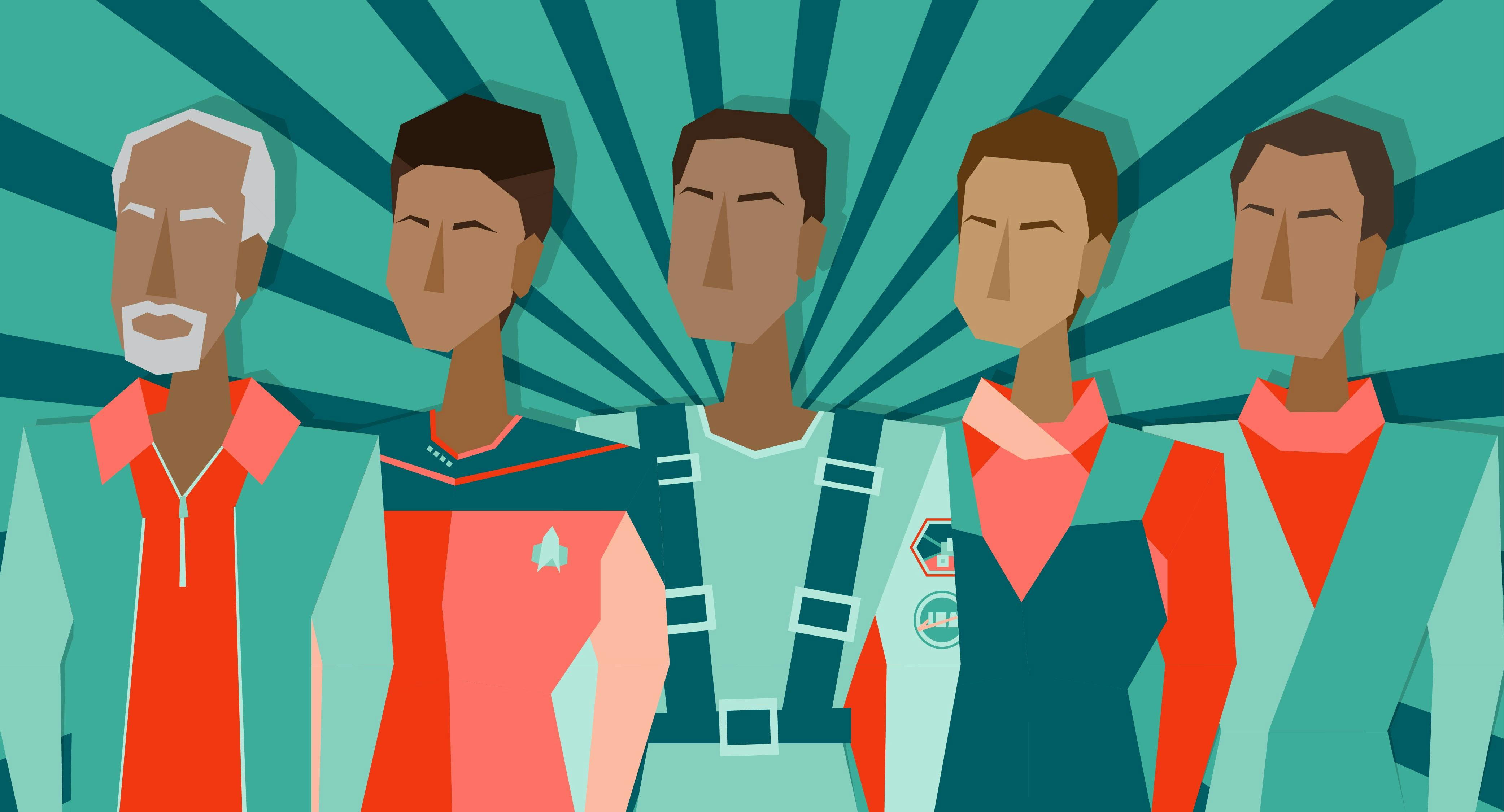
StarTrek.com
Being an African-American with a deep interest in history, especially Black history, I have always looked forward to February, when Black History Month is commemorated in the United States. The holiday started as Negro History Week in 1926, the creation of seminal scholar Dr. Carter G. Woodson, who set the commemorative week in February to honor the birthdays of both Frederick Douglass and Abraham Lincoln.
As a Generation Xer, born in the 1970s, Black History Month was always a part of my remembered education and provided a welcome respite from my history textbooks, as well as newspapers, movies, and television series where Black people, if not absent entirely, were often shunted to the margins. Black History Month, even if occupying the shortest month on the calendar, was a rejoinder to this pernicious narrative. It encouraged all Americans to reflect on the unique story and important contributions of Black Americans.
Star Trek Supports Black Lives Matter
[RELATED: ]
What does any of this have to do with Star Trek you may be asking at this point. Well, Star Trek has its own part in Black history. Nichelle Nichols as Uhura, LeVar Burton's Geordi La Forge, Avery Brooks' Captain Sisko, or perhaps Sonequa Martin-Green's Captain Burnham weekly saving the galaxy are obvious standouts, as reams could be written about each actor, the characters they’ve played, and their impact on the real world. But, in addition to the real-world Black history Star Trek has made, the franchise also has some profound in-universe Black history makers.
One perennial theme in many Black History Month commemorations is the acknowledgement and celebration of historical firsts, key markers of social progress for a people who were, and in many unfortunate ways continue to be, shut out of the mainstream of American life. Though human racism is largely a thing of the past in Star Trek's future, honoring and respecting human history was not. Let's take a look at some of the people that students across the Alpha Quadrant might pay tribute to during a Federation-wide Black History Month.
Commander John Mark Kelly
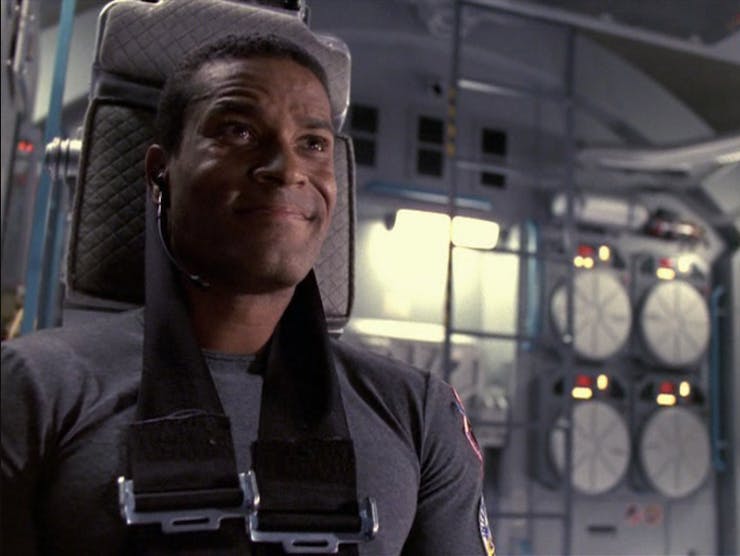
"One Small Step"
StarTrek.com
Though Star Trek's canon history doesn’t establish 21st Century astronaut John Mark Kelly (played by Phil Morris) as the first human to visit Mars, Kelly did command one of the first manned missions to Mars. Both Commander Chakotay and Lt. Tom Paris still remember and revere him centuries after his Ares IV module was lost, as we witness in the poignant episode "."
Interspersing Kelly’s last fateful days with Voyager’s mission to retrieve the Ares IV module reinforced the importance of preserving history and honoring those who came before, and whose sacrifices forwarded human progress.
Lily Sloane
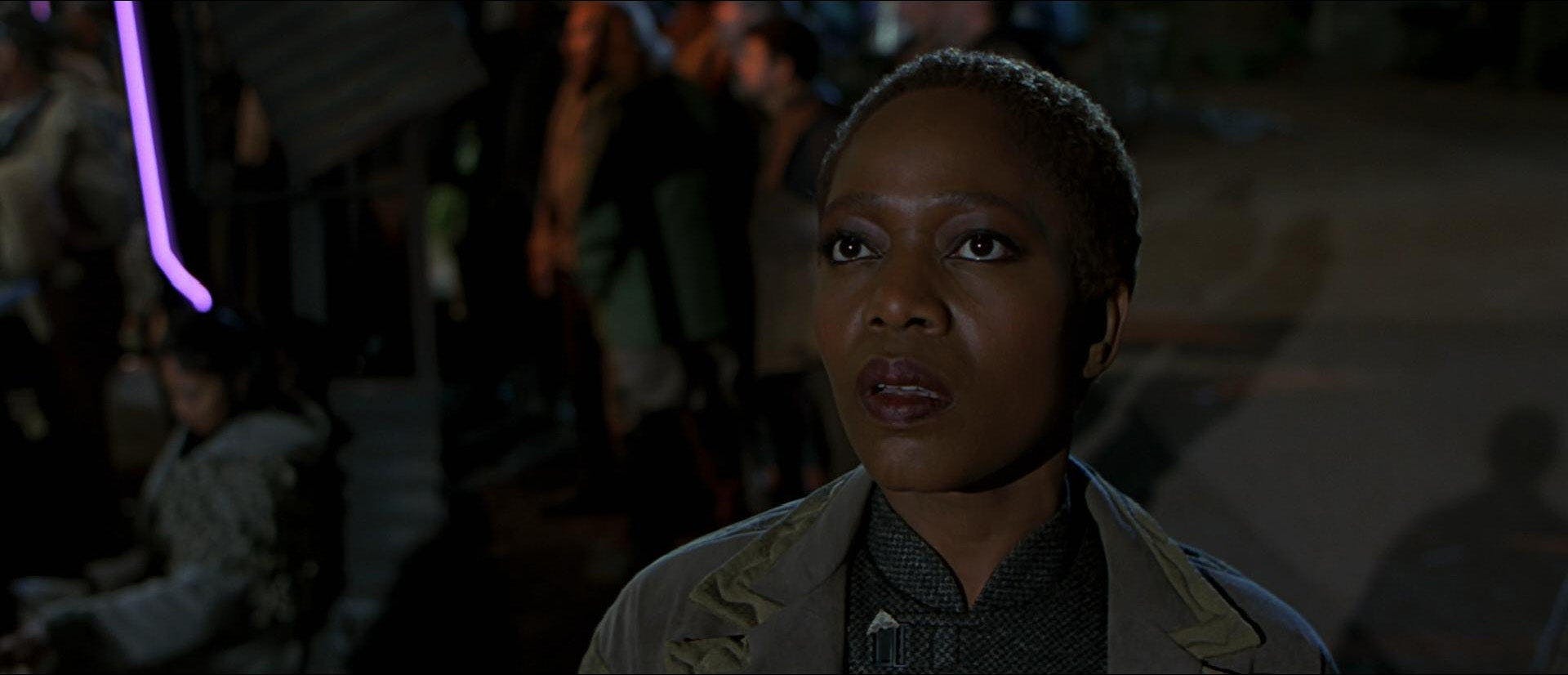
Star Trek VIII: First Contact
StarTrek.com
Lily Sloane's (Alfre Woodard) contributions to humanity's trek to the stars were uncovered by the timely time traveling of the Enterprise-E crew in the film .
Whereas 23rd Century historians, and arguably those in the 22nd Century as well, gave the lions' share of credit to Zefram Cochrane for creating Earth's first warp-capable vessel, First Contact sheds light on the crucial role Sloane played in helping Cochrane accomplish his goal, not unlike the overlooked or under-appreciated roles many Black people have played throughout real history in achieving or assisting similar scientific and technological breakthroughs. Hidden Figures, anyone?
Doctors Emory Erickson & Richard Daystrom
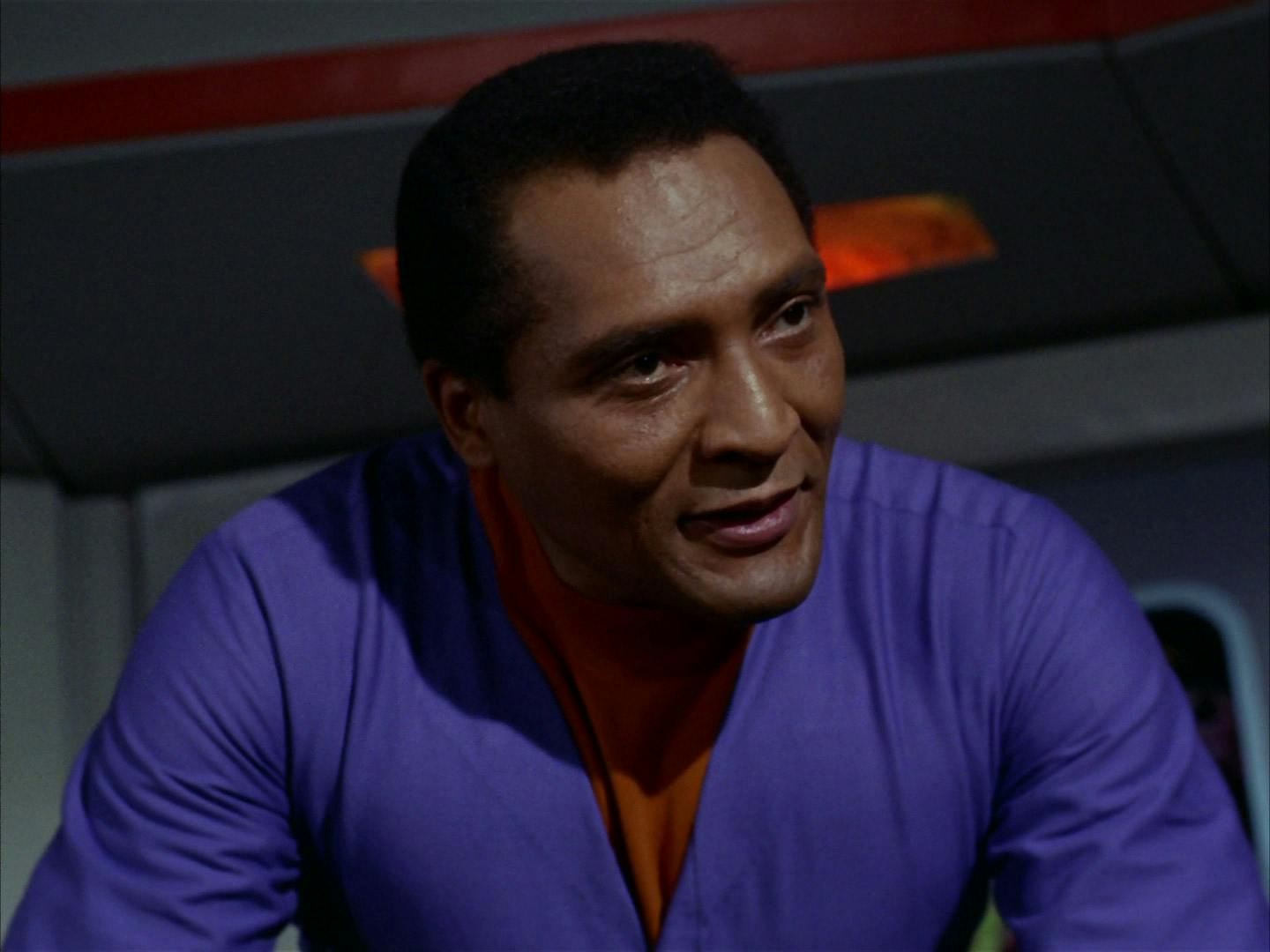
"The Ultimate Computer"
StarTrek.com
Though their respective tragic stories take place over a century apart, there are notable parallels between the lives of Dr. Emory Erickson (Bill Cobbs, 's "") and Dr. Richard Daystrom (William Marshall, ' "").
Erickson, the inventor of the molecular transporter, and Daystrom, who created the comptronic and duotronic computer systems, were geniuses whose scientific breakthroughs came relatively early in their respective careers, and that dazzling early success left both men eager to scale to such heights again.

"Daedalus"
StarTrek.com
Dr. Erickson's hunger for greater acclaim drove him to conduct a risky sub-quantum transporter experiment, while Nobel Laureate and Zee-Magnees Prize awardee Daystrom created the M-5, a multitronic computer designed to replace starship crews in search of the same glory.
The similarities didn't end there as both geniuses' stories took on tragic trajectories. The sub-quantum teleporter experiment cost several lives, including Dr. Erickson's son Quinn; and when it took control of the U.S.S. Enterprise, the M-5, killed several hundred Starfleet personnel during its trial run.
Still, both Erickson and Daystrom are remembered as Federation heroes. Daystrom's legacy leaves behind the Daystrom Institute, which continues to play a pivotal part in Star Trek history, as seen most recently in . Erickson's contributions have been remembered far into the future as well; eagle-eyed viewers may remember seeing his name in the opening credits of 's first season.
Captain Tryla Scott
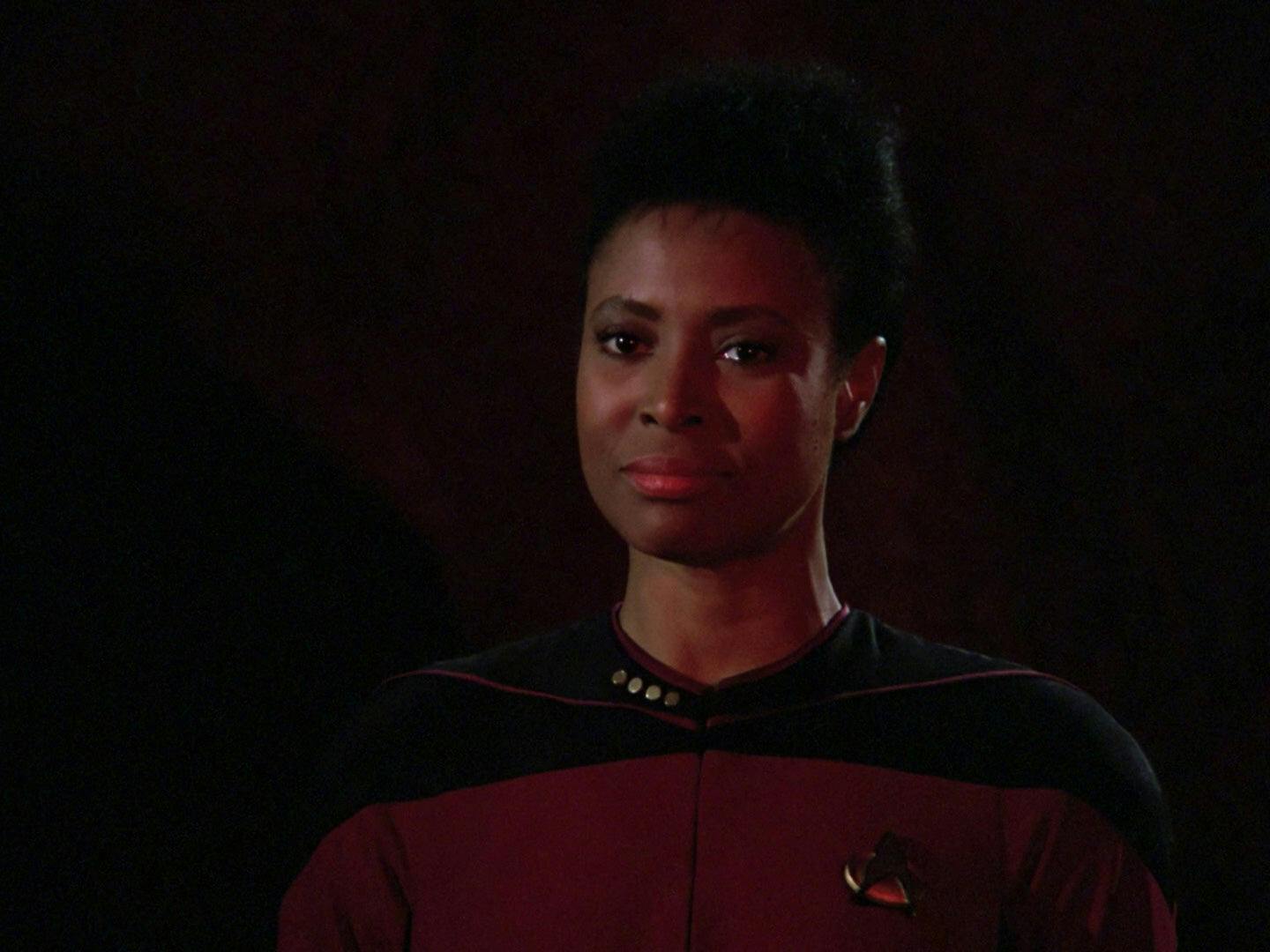
"Conspiracy"
StarTrek.com
Captain Tryla Scott (Ursaline Bryant), of the U.S.S. Renegade, appeared just once, in 's first season episode "."
At the time, she was the youngest person in Starfleet history to achieve a captain's rank — even before Kirk or Picard! Unfortunately, that promising start made her a target for the neural parasites who conspired to take over Starfleet. Scott became one of their victims, and her fate is still unknown. Scott's story, as scant as it was, represents how some of the most important history makers are unsung or their stories can be quickly, and sometimes, completely swallowed up by time. Here's hoping that we learn more about Captain Scott and what became of her in a future Star Trek production.
Star Trek Shows Muslim Fans an Inclusive Future
These were but a few of the Black history makers that helped build Star Trek's imaginary future. Growing up, the fact that they were fictional mattered little to me — they were still heroes to be revered.
Further, Trek's Black history makers showed me, as a young kid, that Black people could and would have a future, one as positive and consequential as the rest of the human family.





